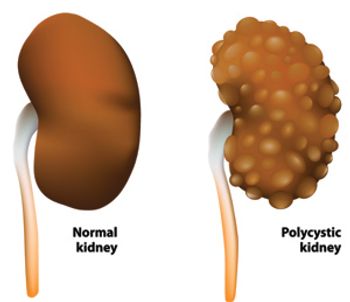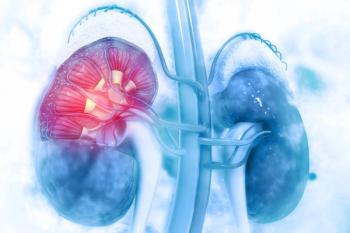
The American College of Cardiology updates guidance on prescribing SGLT2 inhibitors and GLP-1 receptor agonists to patients with type 2 diabetes and cardiovascular disease or CV risk.

The American College of Cardiology updates guidance on prescribing SGLT2 inhibitors and GLP-1 receptor agonists to patients with type 2 diabetes and cardiovascular disease or CV risk.
















Although the name suggests the disease affects only the kidneys, development of fluid-filled cysts can spread to the liver, the pancreas, and other organs. While a healthy kidney is about the size of a fist, a kidney filled with cysts from polycystic kidney disease (PKD) can grow to be about the size of a football weigh up to 30 pounds

Data from DAPA-CKD show that the trial met all its primary and secondary end points for patients with chronic kidney disease, with and without type 2 diabetes. The announcement comes after a data monitoring committee halted the trial in March 2020 when it found the evidence of efficacy was overwhelming.

Just when renal replacement therapy should start after acute kidney injury has been debated.

While clinical guidelines call for those with diabetes to be tested regularly for kidney disease, less than 50% of these patients are tested once a year, according to the National Kidney Foundation.

The authors said the results show a need to develop more targeted interventions for populations at risk of chronic kidney disease (CKD).


The coronavirus disease 2019 pandemic presents a new challenge: patients have severe flu-like symptoms, but the virus can also cause renal failure. Doctors and patients need analgesics that go easy on the liver and kidneys but are not addictive, and this week researchers at LSU Health New Orleans Neuroscience Center of Excellence announced they have discovered a new class of drugs that can do the job.

This week, the top managed care news included CMS planning to pay more for at-home dialysis equipment; ACR supports continued use of telemedicine after the COVID-19 pandemic passes; AJMC®’s coverage of AIDS 2020, the 23rd International AIDS Conference.

End-stage renal disease has long been one of the most expensive and debilitating conditions that affects Medicare beneficiaries. Not only does dialysis cost $90,000 a year—those awaiting a kidney transplant automatically qualify for Medicare—but the need to travel to a dialysis center multiple times a week disrupts employment and home life.

259 Prospect Plains Rd, Bldg H
Cranbury, NJ 08512
© 2025 MJH Life Sciences®
All rights reserved.
